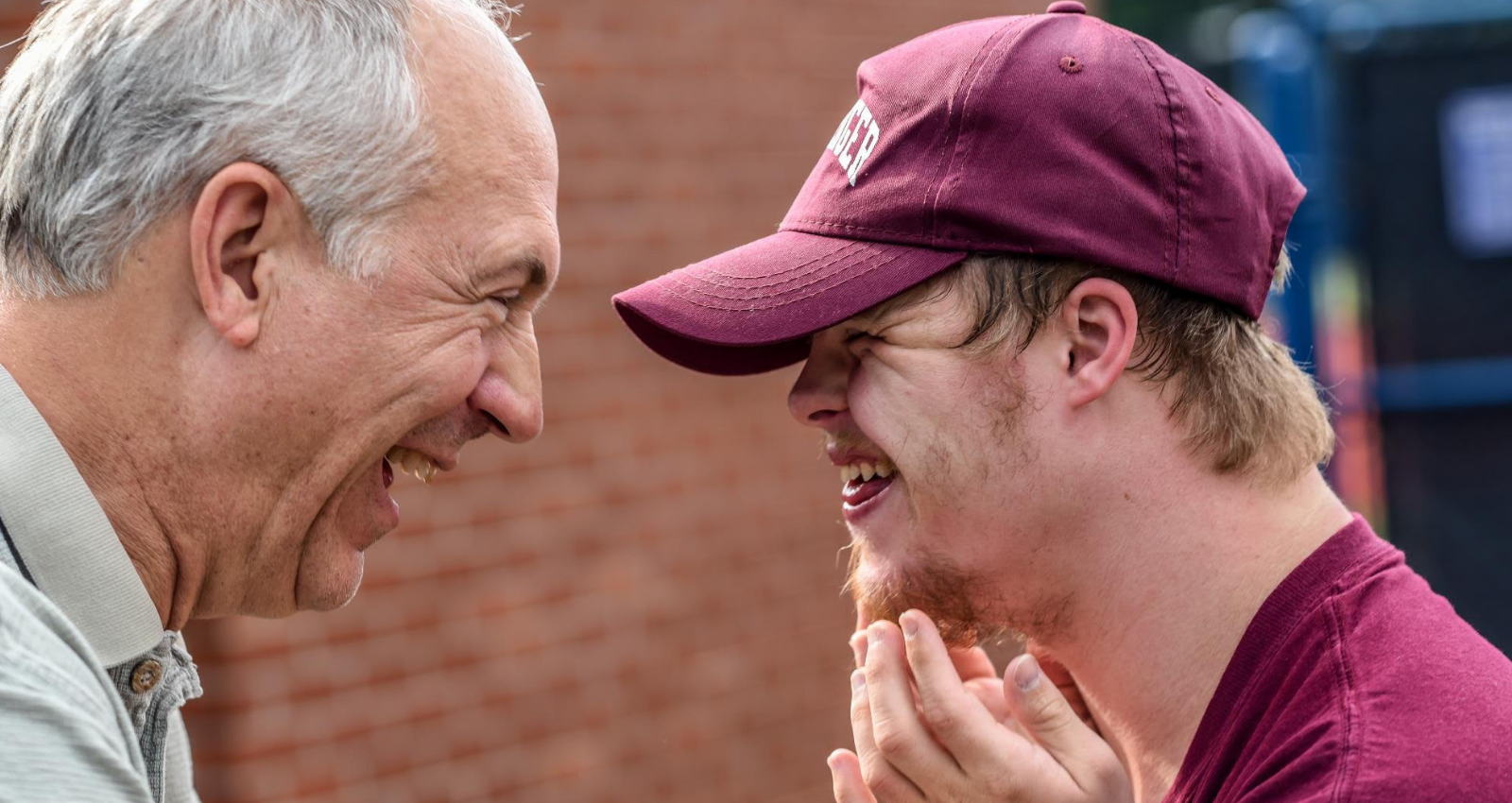
Tips to Tackle Drooling in Children with Special Needs
Tips to Tackle Drooling in Children with Special Needs
According to the British Journal of Medical Practioners, “drooling, also known as ptyalism or sialorrhea, can be defined as salivary incontinence or the involuntary spillage of saliva over the lower lip. Drooling could be caused by excessive production of saliva, inability to retain saliva within the mouth, or problems with swallowing.”
Drooling is extremely common in children and adults with special needs. It can cause lots of issues, such as sores and rashes, wet clothing and bad odour. It can also cause those that are unable to control their saliva to feel self-conscious and embarrassed.

Here we have some tips to help tackle drooling:
Waterproof Bibs
There are lots of types of dribble bibs for special needs children and adults available.
Funky Giraffe offer a wide range of stylish large bandana bibs, which are fleece backed and cotton topped. There are plain versions available, which are ideal for school or matching certain outfits, as well as funky designs. Not only are they stylish, they are comfortable and prevent dribble from soaking through and making clothing wet underneath. Ideal for older children and adults who need waterproof bibs, they are made from 100% breathable cotton and have triple poppers for the perfect fit.
Care Designs offer a fantastic range of neckerchief dribble bibs for special needs children, which are soft and 100% waterproof. These dribble bibs provide a more subtle, scarf style look with a gentle fold in the fabric, which helps to catch spills. Instead of poppers, Care Design neckerchief dribble bibs are quick fastening with Velcro. Care Designs have also created Tabard Bibs, which are multifunctional waterproof bibs, which can be used when eating or to protect clothing from drooling.
Also well worth checking out, is Mum2Mum PLUS’ Bandana Youth Bibs. They come in multiple colours and are functional, waterproof and highly absorbent. These amazing dribble bibs fasten with two poppers so that you can adjust them to a suitable width.
Another product from Mum2Mum is their versatile Feeding Aprons, which can double up as a waterproof bib.
Therapy to help with drooling
Both Speech and Language Therapists and Occupational Therapists are able to provide advice and help with drooling. They may be able to recommend specific exercises and oral motor therapy as well as other tools that can help to improve muscle tone and saliva control.
A Dentist may also be able to help and provide treatment, which can reduce saliva.
Dietician for oral and diet advice
Depending on your child’s disability, your therapist, GP or paediatrician might refer you to a Dietician for oral and diet advice, which can help to reduce symptoms.
Botox Injections
For some, Botox injections into the saliva glands can help to reduce drooling. This is not a permanent solution to excessive drooling and does not always work for everybody, however, it may decrease the amount of saliva by blocking the function of the salivary glands.
Scopoderm/Hyocine Patches
Your GP or paediatrician might suggest trying these patches, which are worn behind a person's ear and can reduce the amount of drooling.
Surgical Procedures & Medication
For excessive drooling, there are various surgical procedures such a removal of salivary glands, and medication, which may help improve the condition.
You should always consult your GP to discuss these options.

